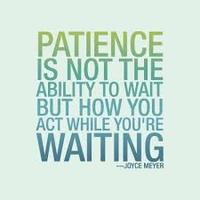The "LESS" principal for the young and developing athlete
LESS: Longevity, Enjoyment, Skills, Success.
What do you think the training would look like for an athlete competing in a cycling event at the Olympic Games? I imagined many hours on the bike perfecting skill and technique, building strength and balance, mastering nutrition and body maintenance, the list goes on. I was recently surprised and inspired to hear at a recent talk that BMX team USA had enlisted the help of a minister to manage and support the team as they took part in a project constructing homes for the less fortunate.
GENIUS! The idea of course is to help provide these elite athletes with a sense of purpose other than their Olympic dreams. The project was to help highlight the bigger picture in life and offered some great team building and balance around their very intense athletic program.
Athletes, like anyone need a sense of purpose and balance along with good work ethic and while junior athletes are developing I see it as the perfect time to provide an environment that will foster these elements while building fitness, skills and strength over time and with patience.
My ultimate aim as a parent and a coach is for my children and the athletes I work with to experience longevity, enjoyment, and success in their sport. Longevity in anything requires balance, moderation, patience, perseverance and passion. So when I see coaches, officials and parents pushing the junior or developing athlete too hard and in only one direction, it makes my blood boil!
I am concerned at seeing too many coaches smash their junior athletes with inappropriate training loads just to see who comes out the other end standing and for short term gain. I wonder why very young swimmers are pressured into training 5-8 times per week with ridiculous volume, why 13yr old female runners are running 50-100km per week and why coaches and parents have the notion that stress reactions and stress fractures come with the territory?
Coaches, let our children and young adults know that they can afford to be patient; it doesn't all need to happen now and winning at any cost can be disastrous!
Recent studies show an alarming increase in overuse injuries amongst junior and developing athletes due to the fact that kids are now specialising in one sport from a young age and therefore activities are often based on repetitive movement and training loads which can lead to overuse injuries in any athlete but in particular, in the young and developing athlete who’s bones, tendons, ligaments and muscles are growing at a fast rate.
Besides the physical downside of too much too soon there are the emotional side effects. There is a great deal of stress involved in putting all your eggs into one basket. Many athletes perform incredibly well as juniors and as the athlete develops situations can change and in many cases for the worse. If you work a very young athlete hard enough at anything you are going to see results but they are not always sustainable. When performance drops (or competitors start to improve) the athlete, parents and coaches are left scratching their heads and clutching at straws as to why their star athlete is struggling. It is tough to watch as confidence levels drop along with their love for the sport and there goes the longevity, enjoyment and success we should be aiming towards.
Lets all learn how to be patient and allow our children to develop self worth and a healthy respect for the hare and the tortoise example! Coaches, parents, managers and officials; when planning for the young and developing athlete, please leave your ego behind and ask yourself “will this provide the right environment for Longevity, Enjoyment, Skills and Success?
The LESS principal is always MORE!
Here are some of my tips and guidelines to help prepare your junior or developing athlete for longevity and success in sport:
- Make sure your junior / developing athlete has a say in and makes their own decisions with their sport and training. Our job is to support, not drag them along for the ride.
- Focus on SKILL and TECHNIQUE first: Enlist a coach or expert with a balanced approach who will help you put skill and technique first. By prioritising skill and technique the athlete may not be the fastest but they will always be able to build upon. Skill and technique are hard to change later on and working on skill and correct technique will also assist with injury management in any athlete.
- We can’t force our ambition and dreams onto them. Take a step back and allow them to work out what they want and how hard THEY are willing to work. Struggles and failure can be a good thing!
- Remind them constantly that having fun, improving skills and personal times etc is the key to success and that winning now is not the priority. Be patient and persevere.
- Remind them constantly that you are proud of them no matter what.
- Include cross training including other sports until the teenage years at least to help provide variety, enjoyment and great conditioning.
- While the young athlete is developing they need more sleep, recovery and adjusted training loads – keep them feeling fresh and keep training uncomplicated. This way training becomes beneficial and not detrimental.
- Take individual schoolwork and lifestyle into consideration and adjust training loads when needed. Studies prove that there is a strong link between athletic and academic performance so keep them interested in both.
I love this insight from Jeremy Snape. Leading Sport Psychologist and Sports Wisdom contributor http://www.sportswisdom.com.au
“Coaches can support athletes to develop self-confidence by breaking performance down into the key processes which underpin performance. Everyone considers what people think of them and that can play a debilitating role if it gets too big. Coaches can celebrate work rate, courage and learning ahead of just winning and then we will find our athletes pushing themselves and enjoying their sport again. Teams need to value the players who support the result not just those with exquisite talent as they will be the journeymen who underpin a consistent approach.”




